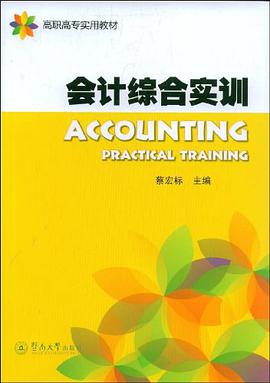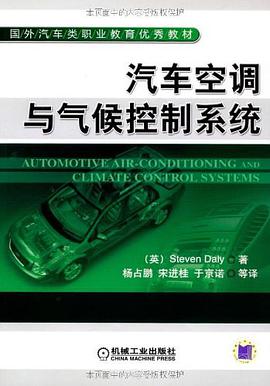

具体描述
A civil society is one in which a democratic government and a market economy operate together. The idea of the civil economy--encompassing a democratic government and a market economy--presumes that people can solve social problems within the market itself. This book explores the relationship between the two, examining the civil underpinnings of capitalism and investigating the way a civil economy evolves in history and is developed for the future by careful planning.
Severyn T. Bruyn describes how people in three sectors--government, business, and the Third Sector (nonprofits and civil groups)--can develop an accountable, self-regulating, profitable, humane, and competitive system of markets that could be described as a civil economy. He examines how government officials can organize markets to reduce government costs; how local leaders deal with global corporations that would unfairly exploit their community resources; and how employees can become coparticipants in the development of human values in markets.
A Civil Economy is oriented to interdiciplinary studies of the economy, assisting scholars in diverse fields, such as business management, sociology, political science, and economics, in developing a common language to examine civic problems in the marketplace.
As an undergraduate text, it evokes a mode of thought about the development of a self-accountable system of markets. Students learn to understand how the market economy becomes socially accountable and self-reliant, while remaining productive, competitive, and profitable.
Sveryn T. Bruyn is Professor of Sociology, Boston College.
作者简介
目录信息
读后感
评分
评分
评分
评分
用户评价
我必须坦率地说,《A Civil Economy》这本书,是我近年来读过的最令人振奋的一本书。它不仅在思想上给了我巨大的启发,更在情感上给了我强烈的共鸣。作者的写作风格非常独特,他能够将复杂的经济学概念,用一种极其生动、极其形象的语言表达出来,仿佛在为我们描绘一幅幅充满希望的经济画卷。我特别欣赏书中关于“经济的伦理底线”的探讨。他认为,经济活动不应该以牺牲人类的尊严和基本权利为代价,而应该以追求人类的整体福祉为目标。这一点对我来说非常重要,因为我一直对社会不公和贫富差距的问题感到担忧。书中关于“可持续发展”的论述也让我印象深刻,他提出了许多具体的建议,如何从个人到企业,再到政府,都能够为实现可持续发展做出贡献。这本书让我看到了经济的另一种可能性,一种更加负责任、更加有温度、更加具有前瞻性的可能。它让我重新思考了“成功”的定义,它不再仅仅是财富的积累,更是对社会的贡献,对环境的保护,以及对人类共同价值的实现。
评分《A Civil Economy》这本书,就像一本打开了我新世界大门的钥匙。在此之前,我总觉得经济学是属于少数精英的领域,离我这样的普通人太远。但是,这本书却用一种极其亲切、极其易懂的方式,将经济学的智慧分享给了我。作者的语言风格非常独特,他既有学者严谨的逻辑思维,又不乏诗人般的浪漫情怀。他用大量生动有趣的案例,将抽象的经济概念,转化为我们能够理解和感同身受的故事。我尤其喜欢书中对“经济的社会责任”的强调。他认为,企业在追求利润的同时,也应该承担起对社会和环境的责任。这一点对我来说非常重要,因为我一直对企业的社会责任问题感到关注。书中关于“社区建设”和“地方经济”的论述也让我印象深刻,他展示了如何通过加强社区联系,促进当地经济的繁荣,并且创造更强的社会凝聚力。这本书让我看到了经济的另一种可能性,一种更加以人为本、更加注重共享、更加具有人文关怀的可能性。
评分我真的很难用简单的语言来概括《A Civil Economy》这本书带给我的震撼。它不仅仅是一本书,更像是一次思想的启蒙,一次价值观的重塑。作者的笔触细腻而深刻,他能够将宏大的经济议题,分解成一个个贴近我们生活的小故事,让我们在不知不觉中,深入思考经济的本质和意义。我曾经一直认为,经济的最终目的就是增长,就是盈利。但是,这本书让我看到了另一种更加崇高的目标:构建一个更加文明、更加公平、更加可持续的社会。我特别欣赏书中关于“经济的包容性”的论述。他强调,经济的发展不应该落下任何一个人,而应该让所有人都能分享到经济发展的成果。这一点对我来说非常重要,因为我一直对社会不公和贫富差距的问题感到担忧。书中关于“社会资本”和“人力资本”的讨论也让我印象深刻,他指出,这些看不见的财富,对于一个社会的长期繁荣至关重要。这本书让我重新审视了我与经济的关系,我不再仅仅是一个被动的接受者,而是可以成为一个积极的创造者,一个推动经济朝着更美好方向发展的参与者。
评分我必须坦率地承认,《A Civil Economy》这本书,彻底颠覆了我对经济学的认知。在此之前,我一直认为经济学是关于市场、关于竞争、关于利润最大化的一门学科,它冷酷无情,甚至有些残酷。但是,这本书却让我看到了经济学温暖的一面,看到了它能够如何被用来构建一个更加公平、更加包容、更加可持续的社会。作者的语言风格非常独特,他既有学者严谨的逻辑,又不失艺术家的细腻情感。他用大量的案例和故事,将抽象的经济概念具象化,让读者能够轻松理解并产生共鸣。我尤其喜欢书中对“合作共赢”的理念的阐述。在当下这个竞争激烈的社会,我们似乎习惯于将一切都看作是“你死我活”的博弈,但《A Civil Economy》却向我们展示了,通过合作,通过建立信任,我们可以实现更大的价值,创造更美好的未来。书中关于“价值创造”的讨论也让我印象深刻,他不仅仅关注物质的价值,更关注那些看不见的价值,比如知识、信任、情感以及社区的凝聚力。这本书让我意识到,真正的经济繁荣,不仅仅是物质上的富足,更是精神上的满足,是人与人之间和谐的关系,是与自然和谐的共处。
评分我不得不说,《A Civil Economy》这本书,给我带来了一种前所未有的阅读惊喜。在翻开这本书之前,我对经济学始终存在一种“敬而远之”的态度,总觉得它离我太遥远,太复杂。然而,这本书彻底打破了我的这种刻板印象。作者用一种极其生动、引人入胜的笔触,将经济学这个看似枯燥的学科,变得充满了生命力。他不仅仅是在介绍理论,更是在讲述故事,讲述那些在经济活动中真实发生的人和事。我特别喜欢书中对“经济的伦理维度”的强调。过去,我们更多地关注经济的效率和利润,却常常忽略了它背后所蕴含的道德考量。而《A Civil Economy》则提醒我们,经济的目的是为了服务于人,为了提升人类的整体福祉,而不仅仅是为了积累财富。书中关于“社区经济”的探讨也让我印象深刻,他展示了如何通过加强社区联系,促进当地经济的繁荣,并且创造更强的社会凝聚力。我曾经一直认为,全球化和大规模生产是唯一的出路,但这本书让我看到了另一种可能性,即如何在本地化和社区化中找到经济发展的新的增长点。这本书让我重新思考了“成功”的定义,它不再仅仅是财富的积累,更是对社会的贡献,对环境的保护,以及对人类共同价值的实现。
评分这本书绝对是我近期读过最令人耳目一新的一本,甚至可以说是颠覆了我过去的一些固有认知。我一直对经济学这个领域抱有一定的距离感,总觉得它过于抽象、冰冷,充斥着各种复杂的模型和数字,离我们普通人的生活似乎有些遥远。然而,《A Civil Economy》的出现,彻底改变了我的看法。这本书并没有试图用晦涩的术语来“吓退”读者,而是以一种非常接地气、富有同情心的方式,深入探讨了经济活动如何能够更好地服务于人类的福祉,而不是仅仅追求增长数字。作者的语言风格非常流畅,仿佛一位经验丰富的智者在娓娓道来,他通过大量生动有趣的案例,将抽象的经济学概念转化为我能够理解和感同身受的故事。我尤其喜欢他对于“公平”和“可持续性”这两个概念的探讨,这不仅仅是口号,而是实实在在可以通过经济政策和个人行为来践行的。阅读的过程中,我反复停下来思考,书中提出的很多观点,比如如何衡量经济的成功,不再仅仅是GDP的增长,而是社区的健康、环境的改善以及个体幸福感的提升,这些都让我深受启发。我甚至开始重新审视我自己的消费习惯,以及我所支持的企业,思考它们是否真正符合“Civil Economy”的精神。总而言之,这是一本充满智慧和人文关怀的书籍,它不仅能让你更深入地理解经济,更能让你思考如何让经济成为建设一个更美好社会的工具。
评分《A Civil Economy》这本书,给我最深刻的印象是它的“人性化”和“前瞻性”。在当下这个充斥着算法、大数据和人工智能的时代,我们很容易被技术的冰冷逻辑所裹挟,而忽略了经济活动背后最根本的驱动力——人。作者却恰恰相反,他将目光聚焦于人,关注人的需求、人的价值、人的尊严,并且探讨如何构建一种能够真正满足这些需求的经济模式。我非常赞赏书中关于“公民责任”在经济活动中的重要性的论述。他认为,作为经济的参与者,我们不仅仅是消费者或者生产者,更是社会公民,我们的选择和行为都应该考虑到对整个社会和环境的影响。这一点对我来说非常具有启发性,我开始意识到,我每一次的购买,每一次的投资,都可能在无形中塑造着我所希望看到的未来。书中对“可持续发展”的探讨也并非空谈,而是给出了许多具体可行的建议,无论是企业层面还是个人层面。我尤其喜欢他关于“社会创新”的章节,他列举了许多真实的案例,展示了普通人如何通过创新的方式来解决社会问题,并且创造经济价值。这本书让我看到了经济发展的另一种可能,一种更加平衡、更加和谐、更加有意义的可能。
评分坦白说,刚拿到《A Civil Economy》这本书时,我并没有抱太高的期望。我以为这又是一本枯燥的理论著作,大概会充斥着各种经济学家的名字和他们提出的枯燥模型。然而,令我惊喜的是,这本书从一开始就抓住了我的注意力。作者没有像许多经济学书籍那样,从历史渊源或者宏观经济指标讲起,而是直接切入了一个非常贴近我们日常生活的问题,比如社区的衰落,或者某个行业中工人权益的困境。他用一种近乎讲故事的方式,将这些问题与更宏观的经济议题联系起来,并且提出了非常具有建设性的解决方案。我特别欣赏书中对“合作”和“信任”在经济运行中所扮演角色的强调。在当下这个竞争日益激烈的时代,我们似乎越来越习惯于把一切都看作是零和博弈,但《A Civil Economy》却向我们展示了,通过建立更强的社会连接和相互信任,我们可以创造出更大的价值,实现更可持续的发展。书中关于“公共利益”和“私人利益”之间关系的论述也让我印象深刻,作者并没有将它们割裂开来,而是指出了两者之间可以并且应该相互促进的可能性。我特别喜欢他关于“共享经济”的分析,但他的视角更加深入,不仅仅关注于如何利用技术来共享资源,更关注于如何在共享的过程中建立起更强的社区凝聚力。这本书让我意识到,经济学并非只是关于效率和利润,它更关乎我们如何共同生活,如何构建一个更和谐、更包容的社会。
评分《A Civil Economy》这本书,就像一缕清风,吹散了我心中关于经济学的迷雾。我一直认为经济学是一门高深莫测的学科,充斥着各种复杂的公式和晦涩的术语,离我的生活太遥远。然而,这本书却以一种极其平易近人的方式,将经济学的核心理念呈现在我面前。作者的写作风格非常流畅,他仿佛在与读者进行一次亲切的对话,娓娓道来,引人入胜。他没有生硬地灌输理论,而是通过大量的真实案例,生动地展示了经济活动如何在现实生活中发挥作用,以及它如何能够影响我们每个人的生活。我特别喜欢书中对“经济的道德责任”的强调。他认为,经济的发展不应该以牺牲环境为代价,不应该以加剧社会不公为代价,而应该以人类的整体福祉为出发点。这一点对我来说非常具有启发性,我开始反思,我是否在不知不觉中,成为了某些不道德的经济行为的帮凶?书中关于“可持续发展”的探讨也让我印象深刻,他提出了许多具体的建议,如何从个人到企业,再到政府,都能够为实现可持续发展做出贡献。这本书让我看到了经济的另一种可能性,一种更加负责任、更加有温度的可能。
评分这本书的阅读体验,就像是走进了一个久违的、充满活力的市场。我不是指那种拥挤不堪、叫卖声此起彼伏的传统市场,而是那种能够让你感受到人情味、听到真诚交流的氛围。《A Civil Economy》正是营造了这样的氛围。它没有高高在上的说教,也没有冷冰冰的理论推导,而是像一位亲切的长辈,循循善诱地引导你思考经济的本质。我曾经一直认为,经济就是效率至上,就是资本的逐利,但这本书让我看到了另一种可能性:经济可以是一种创造美好生活、促进人类共同福祉的强大力量。作者在书中提出的“包容性增长”的概念,让我深受触动。他并没有回避经济发展中存在的贫富差距、环境污染等问题,而是积极地探讨如何通过经济手段来解决这些问题,并且强调了每个人的参与和贡献的重要性。我特别喜欢他关于“价值重塑”的论述,他让我们重新思考,什么才是真正有价值的,是那些冰冷的数字,还是那些看不见但却至关重要的社会资本、环境资本?阅读这本书的过程,我感觉自己仿佛在进行一次内心的“经济洗礼”,过去的许多观念被打破,取而<bos> 建立起一种全新的、更积极的经济观。我强烈推荐这本书给那些对现实社会问题感到担忧,或者对未来经济发展充满好奇的读者。
评分 评分 评分 评分 评分相关图书
本站所有内容均为互联网搜索引擎提供的公开搜索信息,本站不存储任何数据与内容,任何内容与数据均与本站无关,如有需要请联系相关搜索引擎包括但不限于百度,google,bing,sogou 等
© 2026 book.quotespace.org All Rights Reserved. 小美书屋 版权所有



















